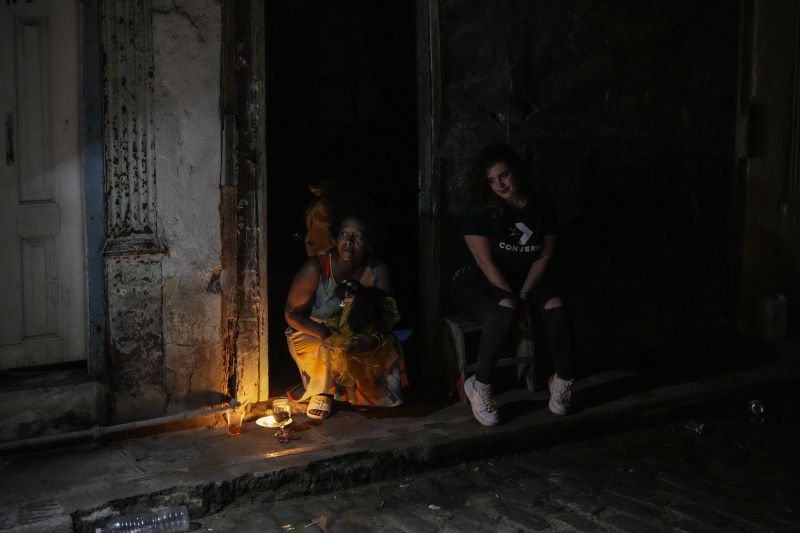As the dawn of the third day broke, Cubans woke up to a reality they had hoped was behind them – a society without electricity, spreading a blanket of frustration and concern across the nation. The island’s power network continues to remain out of service in the aftermath of recent failures to restore the power grid.
Much of Cuba plunged into darkness three days ago. Despite endless efforts by engineers and technicians to reinstate the country’s power supply, a working solution to the enigma of the power outage is yet to be found. This state of affairs has placed Cuba in a precarious situation, with citizens grappling with a reality that severely impairs everyday life.
The persistent condition has had profound implications on the lives and businesses of Cubans. The lack of electricity has undermined basic services such as water supply and air conditioning, compelling citizens to resort to traditional means to maintain daily routines. Household chores, once made effortless by electrical appliances, now require laborious manual work, reminiscing of times before technological advancement.
Communications and connectivity have also taken a significant hit, with internet and telephone services severely disrupted. This has created a vacuum of information, with citizens finding it difficult to communicate with each other or access news about the state of their country or the world. This lack of information heightens the sense of uncertainty and apprehension that has gripped Cubans, resulting in a flurry of rumors compounding their concern.
The industrial sector too has come to a grinding halt, laying bare the fragility of the Cuban economy. The power outage has forced businesses to cease operations temporarily or adjust their schedules to daylight hours, impacting employment and income for Cubans who already grapple with economic uncertainties. Food storage and safety, depended on refrigeration, has become a pressing issue, leading to food shortages and increased prices.
Moreover, hospitals and other healthcare facilities have had to rely on backup generators to function, creating a healthcare system on the brink. The lack of electricity in people’s homes also adds another layer of challenge to the already strained healthcare sector resulting from the global pandemic.
On the other hand, despite dusk-to-dawn silence and darkness, Cubans have once again demonstrated their resilience and unity. Neighbors have been helping each other cope, sharing resources, and finding novel ways to persevere despite the tough conditions.
Meanwhile, the Cuban government continues its tireless efforts to restore the electricity network, though to no avail thus far. The causes behind this massive power failure remain unknown, and therefore, resolving the issue becomes a task shrouded in mystery.
As we enter the third day of the blackout, the struggle continues for Cubans as they navigate through this extended period of hardship without the convenience of electricity – a stark reminder of how dependent modern society has become on technology. This ongoing crisis serves as a wake-up call for the crucial role of resilient infrastructure in a country’s development. Until the lights turn back on, the Cuban people remain hopeful, patient, and united, holding on to the belief that they will eventually prevail over these trying times.




